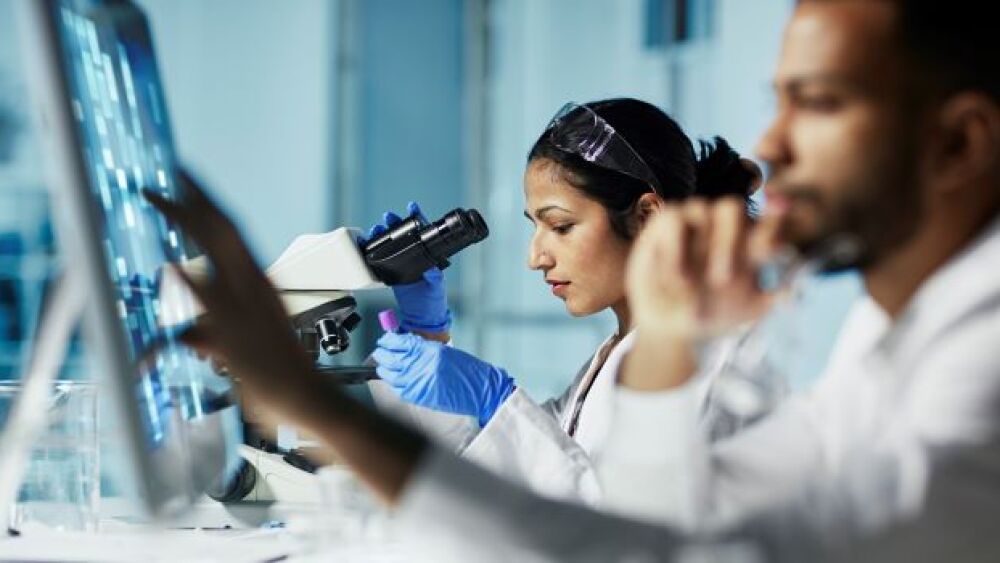This summer, BioSpace will release a series of reports looking at the current state of diversity and inclusion in the life sciences.
On May 25, 2020, George Floyd, a 46-year-old Black man was murdered by a Minneapolis police officer. The approximately nine minutes it took for Derek Chauvin – who was found guilty of the murder in April 2021 – to end Floyd’s life touched off a reckoning across America, including in the life sciences industry where companies rushed to denounce the killing and clarify their positions on Diversity, Equity and Inclusion (DEI).
This summer, in a series of reports beginning with Diversity in Life Sciences: Current Perspectives which hits the wire in June, BioSpace is taking a look at how the industry is doing in this regard. The first report will examine the rising expectations the life science community holds when it comes to their employers; how race affects employee work experience; and will touch upon the persistence of discrimination in the life sciences.
These reports will focus on two-dimensional diversity, i.e. the lenses of race, gender and age. While other differences such as religious beliefs, marital status and educational level also impact the workplace experience, the two-dimensional components were where BioSpace saw the most significant disparities in experience and perspectives within our sample size. Alongside these reports, we will dig deeper still in a corresponding set of in-depth features focused on the experiences of Black/African American and Hispanic/Latinx employees, women and different generations, among other groups.
As race is once again top-of-mind, BioSpace found that employees – and prospective employees – are holding employers to a higher standard. In BioSpace’s 2022 Diversity and Inclusion Survey, diversity was an important factor for 85% of respondents when considering a new position. That number climbed even higher for people of color, women and those identifying as LGBTQ+. As for current employees, the number satisfied with their company’s overall commitment to diversity and inclusion has fallen over the past two years. And employers would do well to listen. According to BioSpace’s 2022 U.S. Life Sciences Salary Report, 81% of life sciences professionals surveyed said they are actively looking for a new role.
The perception that employees from all populations are valued and respected has also dropped significantly from 2020 – indicating that employees are shining a brighter light on these issues, and finding their employer wanting. Perhaps coming face-to-face with the mortality caused by COVID-19 has driven us to demand more from the workplace where we spend so much of our lives.
The Breakdown
White/Non-Hispanic employees make up the majority of the U.S. life sciences community at 62.4%, with Asians representing the next highest number at 14.5%. Black/African American individuals are represented to the tune of 13.9%, the Hispanic/Latinx community makes up 8.4% and Native Americans 1.8%.
Unfortunately, despite the microscope focused on diversity and inclusion in the past 24 months, it appears there is still much progress to be made. White/Non-Hispanic survey respondents were far more likely to agree with statements such as “I feel included and respected for who I truly am” and “My job performance is evaluated fairly” compared to people of color.
On the Right Track
Besides ensuring the human right to equality enshrined in the constitution, diversity and inclusion has myriad benefits for corporations. Hiring ethnically, gender and cognitively diverse teams brings diverse perspectives that can inspire the type of innovation needed to solve complex diseases.
Seattle-based Sana Biotechnology understands this. “Inclusion is the soil from which we’ve built our culture, and we know that we need diversity of thought, input and capabilities in order to make these very complex medicines a reality,” Sana President and CEO Steve Harr, M.D. told BioSpace in a previous interview. Good thinking, because developing cell and gene therapies is incredibly complicated.
Elsewhere, both Johnson & Johnson and the California Life Sciences Association have launched initiatives to level the playing field for minority biopharma entrepreneurs. Bristol Myers Squibb recently sponsored a Diversity in Oncology series dedicated to uncovering barriers to clinical trial access and Pfizer has committed to bridging the diversity gap in its clinical trials. More and more biopharma companies are selecting female executives to lead them into the future. Bayer named ex-GSK exec Christine Roth as the new head of its oncology strategic business unit and Tara Frenkl joined her as SVP and head of oncology development in April. And in February, Gabriele Ricci, Ramona Sequeira and Julie Kim were promoted to high level executive positions within Takeda.
BioSpace looks forward to bringing you more examples of progress and industry insight that could help further turn the tide.
Is there an area of diversity and inclusion you would like BioSpace to investigate further? Please let us know: heather.mckenzie@biospace.com






